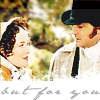Why French people still love Napoléon...
Matthew Kaminsky: nouveau petit venu du légendaire Wall Street Journal qui a inventé le terme anglais désignant la révolution orange ukrainienne "the chestnut revolution" et qui nous enseignait le journalisme à l'anglaise, classe dans laquelle je me suis précipité aussi bien pour revivre les sensations fortes d'Irlande que pour échapper aux cours de radio et à mon trac insupportable. Une des particularités de ce cours était que l'on pouvait écrire sur n'importe quel sujet...et en panne d'inspiration et influencée par une série récente de papiers que mon père avait fait pour Marianne et le Figaro Magazine, je me suis également mise en tête de scribouiller sur ce grand homme. Seulement j'ai vite peru mon angle "pourquoi les Français l'idolâtrent" pour partir dans une bien trop longue analyse historique, un peu calquée sur celle de DJ^^;...mais inventer des néologiqmes était sympathique ^^ Qui sait, rendez-vous le 2 décembre prochain pour feter le bicentenaire d'Austerlitz comme il se doit!
A strange fever has taken hold of France : the Napoleomania. Since the beginning of December, France is celebrating enthusiastically the bicentenary of the coronation and anointing of Napoleon and the proclamation of Empire which took place December 2nd 1804: with a proliferation of books, exhibitions of paintings by David, jewellery or auctions, special issue of magazines.
At first sight, this Napoleonic fetishism seems to be schizophrenic. French Republic is honouring the murderer of the democratic ideal of the French Revolution. Did Napoleon not invent with the Brumaire coup of 9-10 November 1799 modern totalitarianism? In many ways, his rule announces twentieth century dictators like Hitler or Stalin. He practised political assassination like the kidnapping of the duke of Enghien. He developed a secret police under the direction of Fouché. As a war-hungry leader, He waged war all over Europe from West (Spain) to West (Russia). He resorted to propaganda through art with David when the painter manipulated historical reality by erasing or adding persons in his paintings foreshadowing Stalin’s alterations of pictures. He created also his legend and constantly lied about himself. There were small anecdotal lies like the nature of his parents’ union that were not legally married but also state lies. For example, during the Russian’s campaign, he remained tight-lipped about human loss but was constantly babbling about horses’ deaths. The list of his sin seems endless. Should French people not condemn it straight away?
Upon closer inspection, Napoleon’s case is more complicated. A survey published in the weekly Figaro magazine revealed that he has been forgiven. French citizens recognize the emperor for what he was : a great statesman (37%) but also a tyrant (26%). They accept his whole legacy: the institutions he created like the French Central Bank or the “lycées” as well as his dark legend: the death on the battlefield of thousand of young men.
This modern plebiscite casts a doubt over the accuracy of the comparison between the Consulate, the First Empire and the Third Reich. If Napoleon did not trouble himself about the rights of opposition or freedom of the press, he could show some restraint. His arch enemy Germaine de Stael was only forbidden from coming closer than a twenty miles radius of Paris. Similarly, Chateaubriand who looked back nostalgically to the monarchy, was tranquilly sulking in his Ile de France’s castle. But above all, Napoleon has historical extenuating circumstances.
The new found love for the Corsican General can be explained by a different look at the French revolution. Two hundred years after the taking of the Bastille, the French are coming to terms with this founding but bloody episode of their History of which Napoleon was a part but also a victim. He had the ungrateful task of ending it. But in order to fulfil his mission, he had no other choice than to impose an authoritarian government. Following the Terror and the Directory, the country is weakened by a generalised corruption of its elite and on the verge of bankruptcy: only 160.000 francs are left in the state coffers and the taxes are uncollected. Anarchy is reigning : there is no police anymore and bandits are roaming on the roads. The war against Russia and Austria is turning to the disadvantage of France. Revolution is not synonymous anymore with freedom but with disorder. French people are not protective of its institutions such as the National Assembly and welcome the iron grip of a man who goes from victory to victory, who is able to re-establish a financial, moral and public order. Thus, nobody will stand up against the Brumaire putsch. On the contrary, the takeover will be approved by an overwhelming majority during the first plebiscite. This popular support begins to waver when the emperor undergoes his first military defeats and when French people begin to feel the economic and human burden of war.
Napoleon is also not the only one to blame for the perpetual warfare that France is experiencing under his rule. The other culprit is again the Revolution. Napoleonic wars were the continuation of the Revolution wars. These conflicts were not only about territorial conquests, but also about ideology: royalty vs. democratic principles. Napoleon has not completely renounced the Revolution’s values such as civil equality or religious freedom. Europeans monarchies could not afford to run the risk of a “revolutionary” contagion and therefore were not inclined to make peace with the young expansionist nation as is shown by secret protocols signed by France’s neighbours aimed at bringing back France to its 1789’s frontiers. The United Kingdom’s intransigence with the breaching of the 1802 treaty is a case in point. War was a vicious circle Napoleon helped to create. As long as he was victorious, he was encouraged to extend unreasonably his conquests and not to negotiate with doubtful interlocutors. Once his fortunes turned, he was not anymore in a position to make compromises. All his proposals of territorial restitutions were turned down in 1813 and 1814.
We must not entirely judge Napoleon by our modern criteria. At the time, France was more democratic than its neighbours. Napoleon’s initiatives were sometimes admired outside France. Until 1808, Germans were quite enthusiastic about his reforms such as the civil code or his reorganisation of the Germanic Confederation from hundreds of little kingdoms to forty dukedoms.
Another reason for Napoleon’s popularity is his omnipresence. His achievements have survived the test of time. We experience them in our daily life. He deeply transformed Paris where many monuments, streets bear his name or memories. His shadow is still hovering over institutions he created and that have shaped France like the Civil Code, the “Conseil d’Etat”, the administrative organisation of the country with the prefects, the centralisation of the state. Some deems him “ Europe’s father” by helping spreading the Revolution’s ideals or enforcing the state’s modernisation. His wish to see a united Europe under France’s leadership foreshadows the European Union. All countries had the same constitution.
If Napoleon was a dictator and he was, he was also an enlightened and visionary despot. And more simply, a man who won everything before lost it. A tale of human failure that makes him endearing to French citizens.





1 Comments:
I came across this account by accident only to find an historical 'car-crash' where the victim is Napoleon himself. This is not a review, it is a travesty. The errors and misrepresentations are legion.
The writer compares Napoleon to Hitler and Stalin. The former killed six million Jews while Napoleon gave them equal rights and argued for them having an independent homeland in Palestine. Stalin killed millions of rich peasants - kulaks, while Napoleon made sure the French peasants secured the gains they had made during the Revolution.
If Napoleon was as evil as those two why did he not execute Talleyrand, Fouche and Bernadotte who betrayed him and France time after time?
She mentions the 'political assassination' of d'Enghien but says absolutely nothing about the numerous assassination attempts upon his life by the Bourbons, especially the Comte d'Artois, through his notorious Chevalier de la Foi. His many terrorist plots against Napoleon's life killed dozens of innocent civilians and they were paid for with British gold and backed and supported by Pitt and 'select' members of the British Cabinet. Parliament was never consulted or informed. Even during the Peace of Amiens, these terrorist attacks continued.
She mentions Madame de Stael but does not seem to know that by twice rejecting her physical advances, Napoleon made an enemy for life. Hell hath no fury indeed!
The writer says Napoleon told many lies and 'The list of his sins seems endless'. Physician heal thyself! Are your lies by omission or ignorance?
This is a terrible mishmash of nonsense and ill-educated twaddle. Nul points!
SOULADREAM
Post a Comment
<< Home